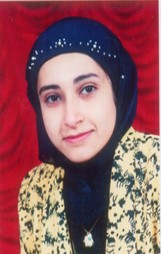Background and Aims: There is a debate whether the majority of gastritis mucosal injury occurs as a direct result of H. pylori infection or as a result of immune cell damage from abundant mediators of inflammatory response. Recently, Urocortin (Ucn) has emerged as a mediator of the gastrointestinal (GI) responses to noxious stimuli. Interleukins 1β (IL-1β) and interleukin-10 (IL-10) may play important roles in gastric inflammation caused by H. pylori infection. We aimed to localize Ucn 1, IL-1β, and IL-10 in gastric biopsies to elucidate their possible role in local inflammatory response before and after medical eradication of H. pylori infection. Subjects and Methods: Gastric biopsies were obtained from 72 patients with dyspeptic symptoms. Specimens were examined for gastritis, presence or absence of H. pylori and immunohistochemically for Unc 1, IL-1β and IL-10 expression. Results: H. pylori was positive in 39/72 (54.2%) cases. There was significant difference in activity score between H. pylori positive and H. pylori negative patients. In H. pylori positive patients; eradication therapy has significantly reduced activity of gastritis, increased Ucn 1 and reduced IL-1β and IL-10 immunostaining. There were significant negative, positive and no correlation between Ucn 1, IL-1β and IL-10 immunostaining respectively and activity of gastritis. Conclusion: Unc 1 may be involved in local anti-inflammatory process in active gastritis. IL-1β is considered a marker of inflammation as it increased with severity of gastritis and markedly decreased after treatment.
Abbreviations: Helicobacter pylori (H. pylori), gastrointestinal (GI), urocortin (Unc), interleukin 1β (IL-1β) and interleukin-10 (IL-10), corticotropin releasing factor and hormone (CRF and CRH).

